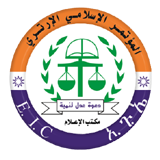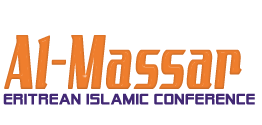Statement attributable to the UN High Commissioner for Refugees Filippo Grandi on the situation of Eritrean refugees in Ethiopia’s Tigray region
14 January 2021
I remain extremely troubled by the humanitarian situation in the Tigray region of Ethiopia and its impact on civilians, in particular Eritrean refugees hosted in the region.
We have recently seen some positive developments, working with the government to access and assist vulnerable populations, including the transport and distribution of food to some 25,000 Eritrean refugees in the Mai Aini and Adi Harush camps in Tigray. Last week UNHCR and partners carried out a rapid assessment mission at the two camps with the Ethiopian Agency for Refugee and Returnee Affairs and have been able to start restoring the water supply and limited health services. We hope that soon we will be able to re-establish full protection and other humanitarian activities.
However, in spite of repeated requests, UNHCR and partners have not yet had any access to the Shimelba and Hitsats refugee camps since the start of the law and order operation two months ago.
I am very worried for the safety and well-being of Eritrean refugees in those camps. They have been without any aid for many weeks. Furthermore, and of utmost concern, I continue to receive many reliable reports and first-hand accounts of ongoing insecurity and allegations of grave and distressing human rights abuses, including killings, targeted abductions and forced return of refugees to Eritrea. Reports of additional military incursions over the last 10 days are consistent with open source satellite imagery showing new fires burning and other fresh signs of destruction at the two camps. These are concrete indications of major violations of international law.
Ethiopia has long given refuge to people fleeing conflict and persecution. The Federal Government has provided assurances that measures are being taken to minimize the impact of the conflict on civilians. I have impressed upon the Ethiopian leadership the urgency of ensuring the protection of refugees, preventing forced return, and keeping refugee camps safe from attacks and other threats from armed actors.
Equally distressing to UNHCR teams on the ground has been our inability to assist thousands of Eritrean refugees who continue to flee the camps in search of safety and support. Refugees arriving on foot to Shire town in Tigray are emaciated, begging for aid that is not available. Refugees who reached Addis Ababa are being returned to Tigray, some against their will. While access to Mai Aini and Adi Harush camps is a good start, I must reiterate the UN-wide call for full and unimpeded access – exploring all options to safely provide desperately needed assistance.
UNHCR remains committed to work with the Ethiopian government to carry out our mandate to protect and assist those forced to flee in line with the humanitarian principles of impartiality and neutrality. We remain available to seek solutions – together - to the current humanitarian problems in a spirit of collaboration and constructive partnership. Safe access and swift action are needed now to save thousands of lives at risk.
https://www.unhcr.org/admin/hcspeeches/600052064/statement-situation-eritrean-refugees-ethiopias-tigray-region.html




